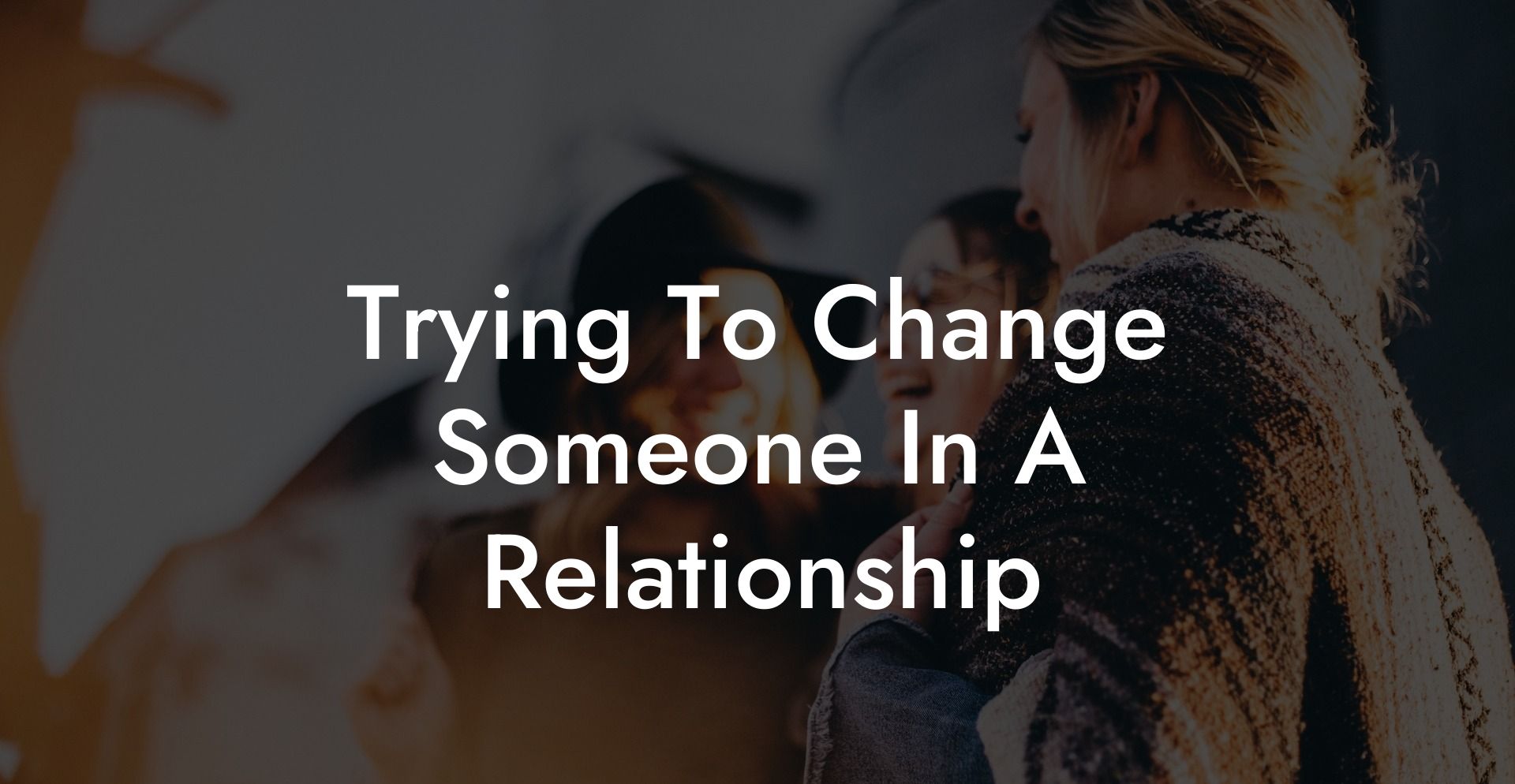It's a common belief that if we love someone, we should accept them for who they are. However, many people find themselves trying to change their partner in various ways. They believe that if only their partner would change this one thing, their relationship would be perfect. In this article, we will explore the reasons why attempting to change someone in a relationship is often a futile endeavor and discuss healthier approaches to dealing with both personal and relational growth.
Trying To Change Someone In A Relationship Table of Contents
Reasons people try to change their partners
There are several reasons why individuals may attempt to change their partner. Some of these include:
- Believing that their partner's behavior reflects poorly on them
- Fear that their partner's habits may cause irreparable damage to the relationship
- Thinking that changing their partner will result in a more fulfilling and happier relationship
- Wanting their partner to fit into their idealized image of who they should be
Why trying to change someone is often unsuccessful
Attempting to change someone in a relationship can have several negative consequences. These include:
- Building resentment between partners
- Decreasing self-esteem in the partner being asked to change
- Creating added tension and conflict in the relationship
- Continual disappointment when change does not occur
Change is difficult and requires a strong motivation for the individual to commit to the process. Trying to force change upon someone usually backfires and can contribute to a breakdown in the relationship.
Alternatives to trying to change someone
Instead of trying to change your partner, consider the following healthier alternatives:
Focus on self-improvement
Channel the energy you would spend trying to change your partner into improving your own behavior, habits, and communication skills. This will not only benefit you personally but can also improve the quality of your relationship.
Acceptance and understanding
Acknowledge that your partner is an individual with their own set of characteristics, preferences, and quirks. Understanding and accepting them for who they are can lead to a deeper level of connection and intimacy.
Express your concerns openly and honestly
If there is a specific issue that bothers you about your partner, approach them with empathy and express your concerns calmly and openly. Remember that your partner is more likely to respond positively to constructive criticism if it is presented in a non-threatening manner.
Seek professional help
If your partner's behavior is causing unbearable strain on the relationship, consider seeking the help of a therapist or counselor. They can assist both partners in understanding one another's needs and expectations, providing guidance on finding common ground.
Trying To Change Someone In A Relationship Example:
Rachel had always been a perfectionist, and her husband, Tom, was the complete opposite. His disorganized and laid-back approach to life drove her crazy. Rachel would often nag Tom about his habits and consistently made efforts to change him. However, this just led to increased tension and resentment between them.
After reaching a breaking point, Rachel decided to focus on her own self-improvement and began attending therapy sessions. Through this process, Rachel learned how to accept and understand Tom's differences. She also discovered healthier ways to communicate her concerns without trying to change him. As a result, both partners were able to grow individually and together, strengthening their relationship.
Attempting to change someone in a relationship is usually a doomed endeavor. Instead, focus on self-improvement, acceptance, and open communication to foster healthier personal and relational growth. Remember, true love involves accepting your partner for who they are, with all their endearing quirks and flaws. If this article has resonated with you, please share it with others who may also find value in these insights, and explore other compelling articles on The Monogamy Experiment.













